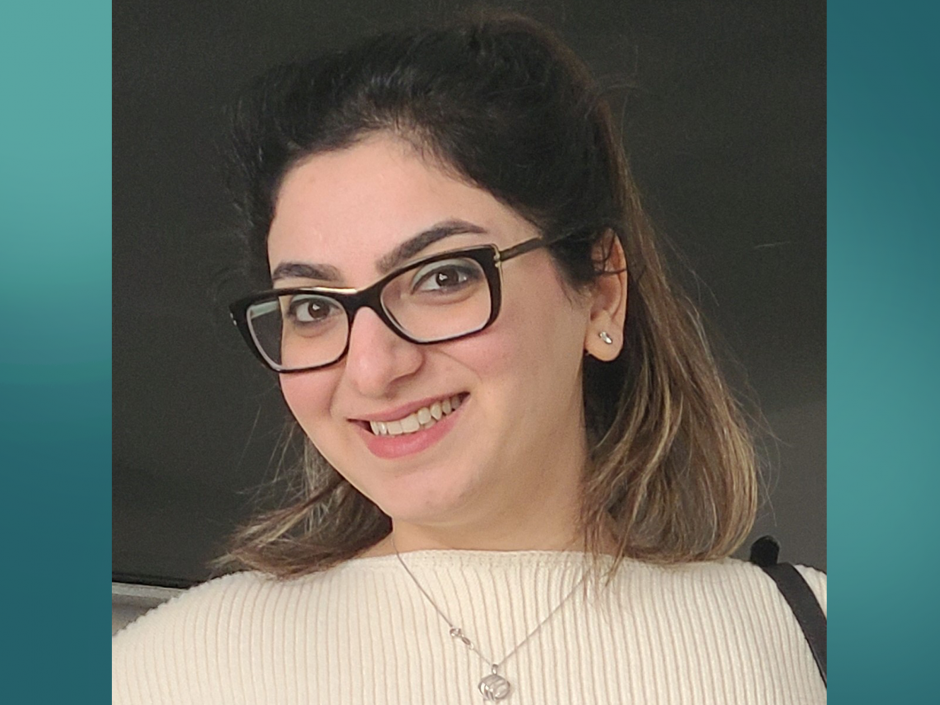ECE Student Perspectives: Golara Javadi, PhD Candidate
“Stepping into a new field has been a challenge… But every single step has been joyful. “
Golara Javadi is a third-year PhD candidate in the Electrical and Computer Engineering department at UBC. In her own words, she’s someone who’s “constantly looking for new adventures and opportunities.”
Golara obtained her Bachelor’s degree from Isfahan University of Technology, and in her Master’s at Simon Fraser University, where she worked on cognitive radio and signal processing. Following that, she worked in the power industry for three years at ZE Power Engineering.
Her work experience is in power engineering- but Golara now studies AI. She recently became a fellow with the Borealis AI research centre, where she will be working to contribute to the advancement of Artificial Intelligence and Machine Learning. She’s passionate about enhancing peoples’ lives with the help of AI, through her research with ECE and Borealis AI.
In this interview, she discusses her experience navigating this transition and finding success at ECE.
What research will you be conducting as part of your fellowship with Borealis AI?
I am working on developing a novel technique for prostate cancer detection, based on ultrasound data enhanced with AI and machine learning.
How did you find out about this fellowship?
I follow Borealis AI on Linkedin. I was browsing my feed, and I noticed their post about this fellowship. I wasn’t hopeful about it, but I’ve learned not to self reject, and I decided to go ahead and apply. The process was straightforward from there.
What has your career path looked like up to this point?
My background was always electrical engineering, but I’ve tried different disciplines. I did my bachelor’s in telecommunication and electronics in Iran. After that, I continued on to a master’s in telecommunication at SFU, and started working as a co-op student in a software company, ZE Power Group.
Halfway through my co-op, I decided to switch to their sister company, ZE Power Engineering. This company was owned by the same owner but existed in a totally different area- the power industry. I got a job offer after my co-op terms ended.
My professional character formed there, and in that company I grew from a co-op student, to an electrical engineer, to a team lead. After three years, I decided to move on to the PhD program at UBC to work on AI. Right now I am working as an intern at Borealis AI, where they build AI solutions for RBC products.
Why did you choose to change your focus? What was this like?
I was always passionate about research, especially in signal processing and AI. After three years of working in the power industry, I was no longer feeling challenged enough by the daily routine of my job, and I was looking for a change.
I’m always open to new opportunities and am open to stepping out of my comfort zone, but this change was not easy, both financially and technically. The Four Year Doctoral Fellowship (4YF) program at UBC helped me with financial aspects, and I was able to overcome the technical challenges by reading a lot and getting support from my great friends and colleagues at UBC and SFU.
What has been a challenge of PhD study at ECE?
Coming back to school after industrial experience and stepping into a new field has been a challenge, as well as keeping up with the pace of new methods and advanced techniques that are being generated in academia every day. But every single step has been joyful.
In the beginning, there were a lot of challenges. I had to build the foundations of my own computer science knowledge and start implementing very quickly. I am still learning, and I am quite happy with where I am now.
What has been something you’ve enjoyed?
Through my studies at ECE, I tried to be proactive and not only focus on learning and publishing results, but also be involved in extracurricular activities- things like being a secretary in ECEGSA and a woman in engineering advocate with the “Women in Engineering and Geoscience Division” of EGBC.
What is one piece of advice you would give a new student starting their program at ECE?
If you don’t feel happy with what you are doing, get out of your comfort zone. Trust in yourself, and never self-reject.
Find out more about the Borealis AI fellowships here.
Connect with Golara Javadi.


